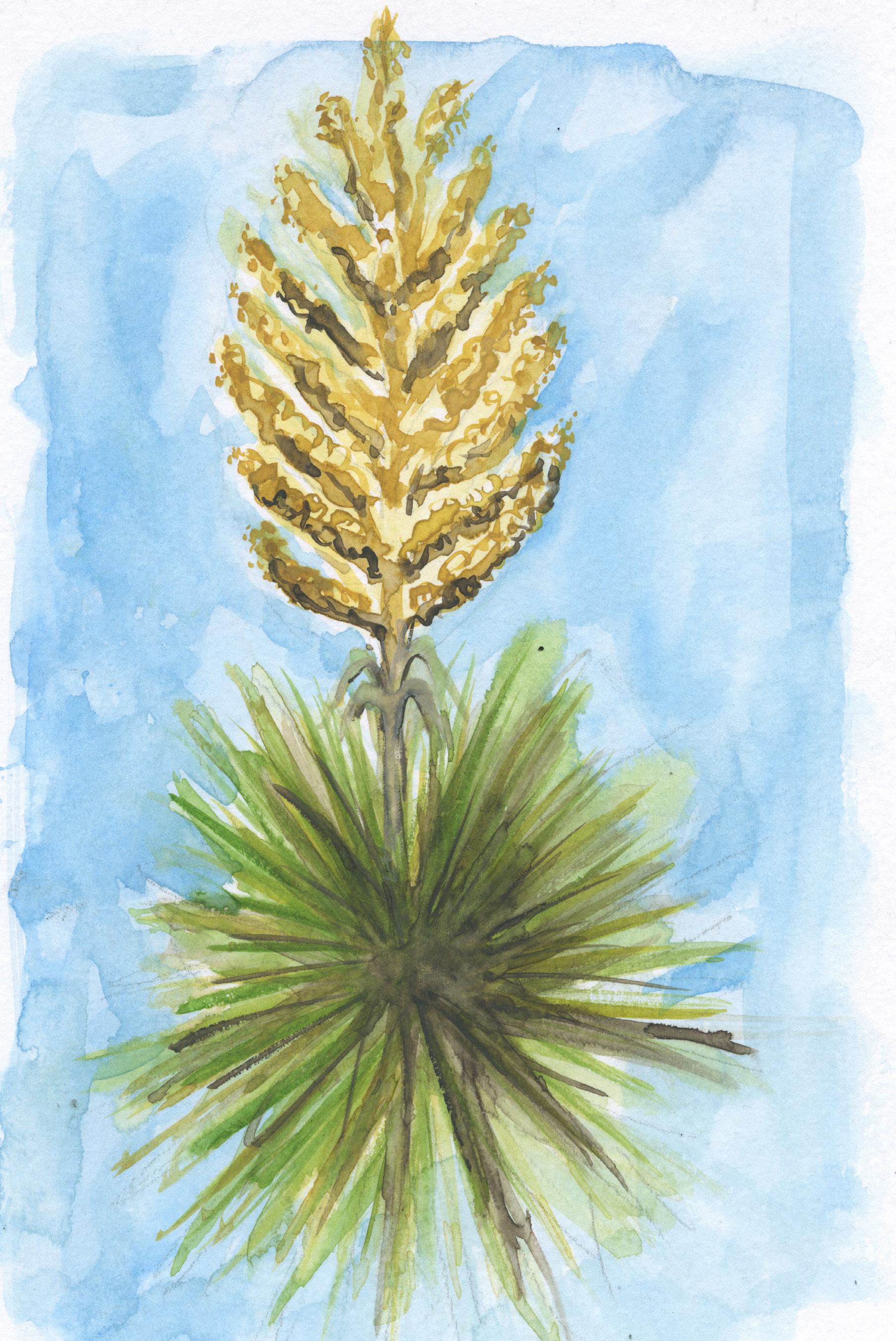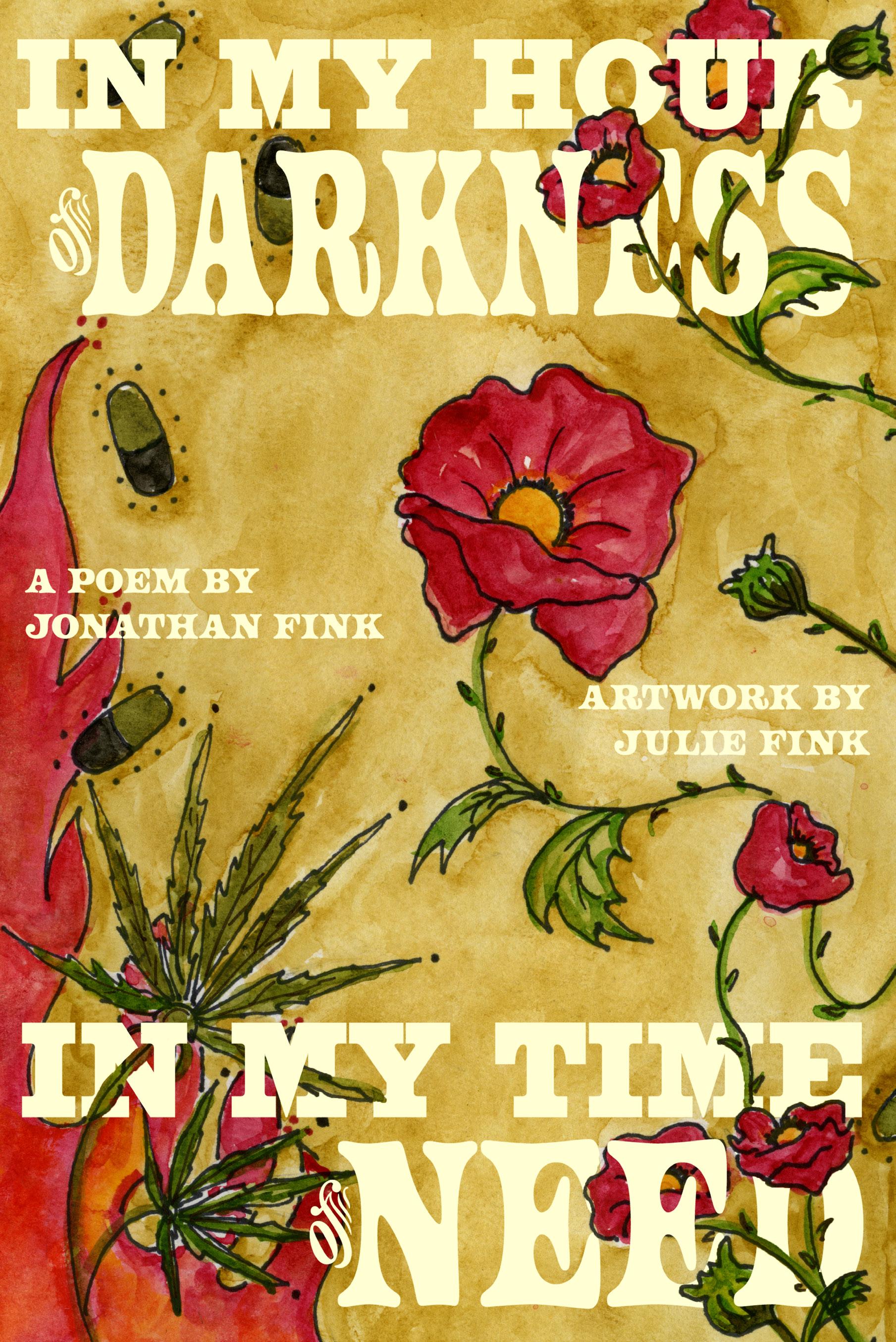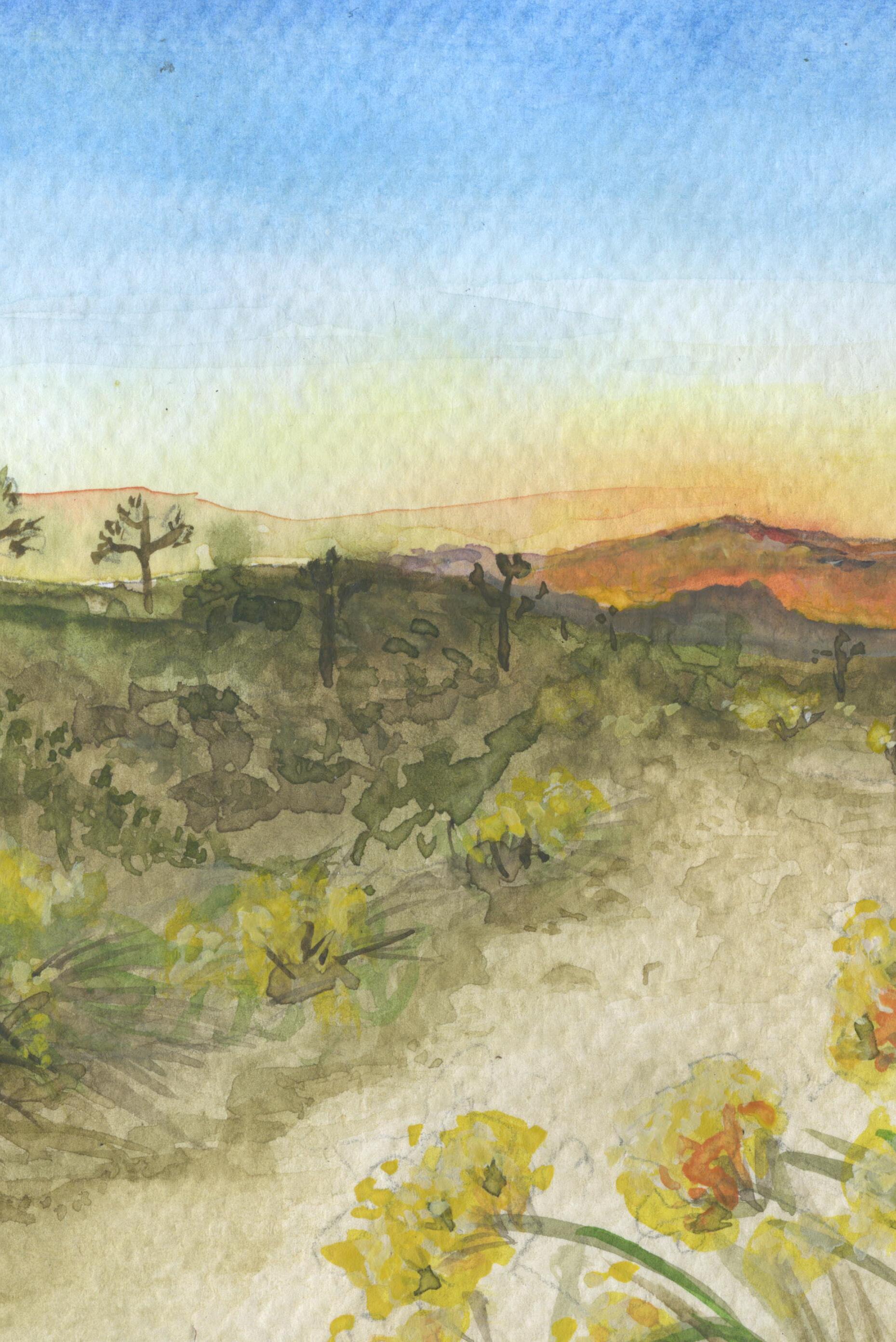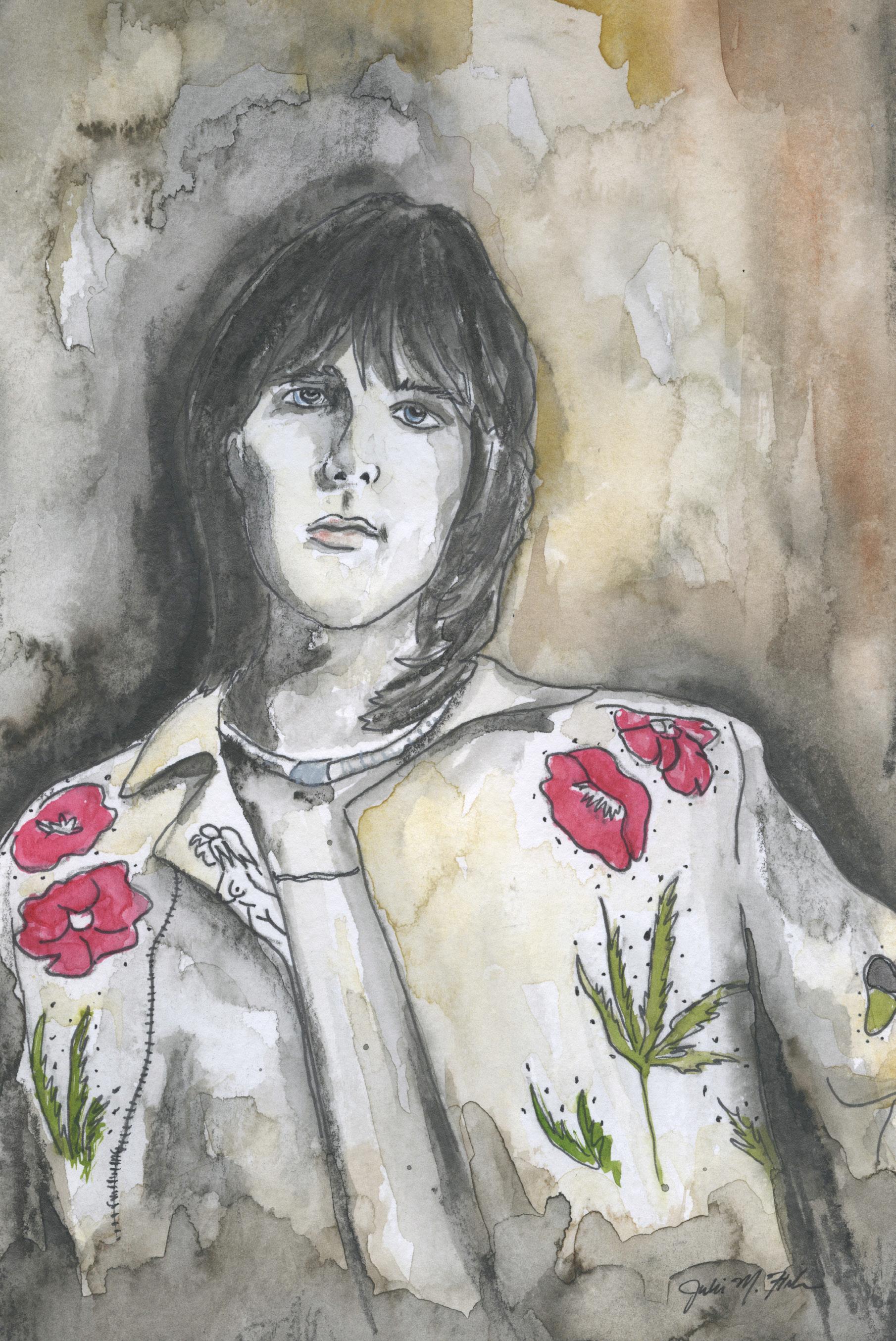In My Hour of Darkness, In My Time of Need
There is a voice on the desert wind, hard lines of relief, and passing from this world to the next feels as simple as stepping from the blaze of the midday sun, quivering in the cloudless sky, to the shade of boulders, the air there light on the skin, in the lungs, unlike the air of a tomb, this shadow air cool and rising, light enough to carry ashes, to feed a flame, air as fuel, air to carry a voice, not on wings, but as an updraft, a flurry from which I form these words. From the flint spark and the swirl of smoke, I call to you, I, who no longer can sing, the smoke a curtain I cannot part, a haze through which I cannot see or stride.
11
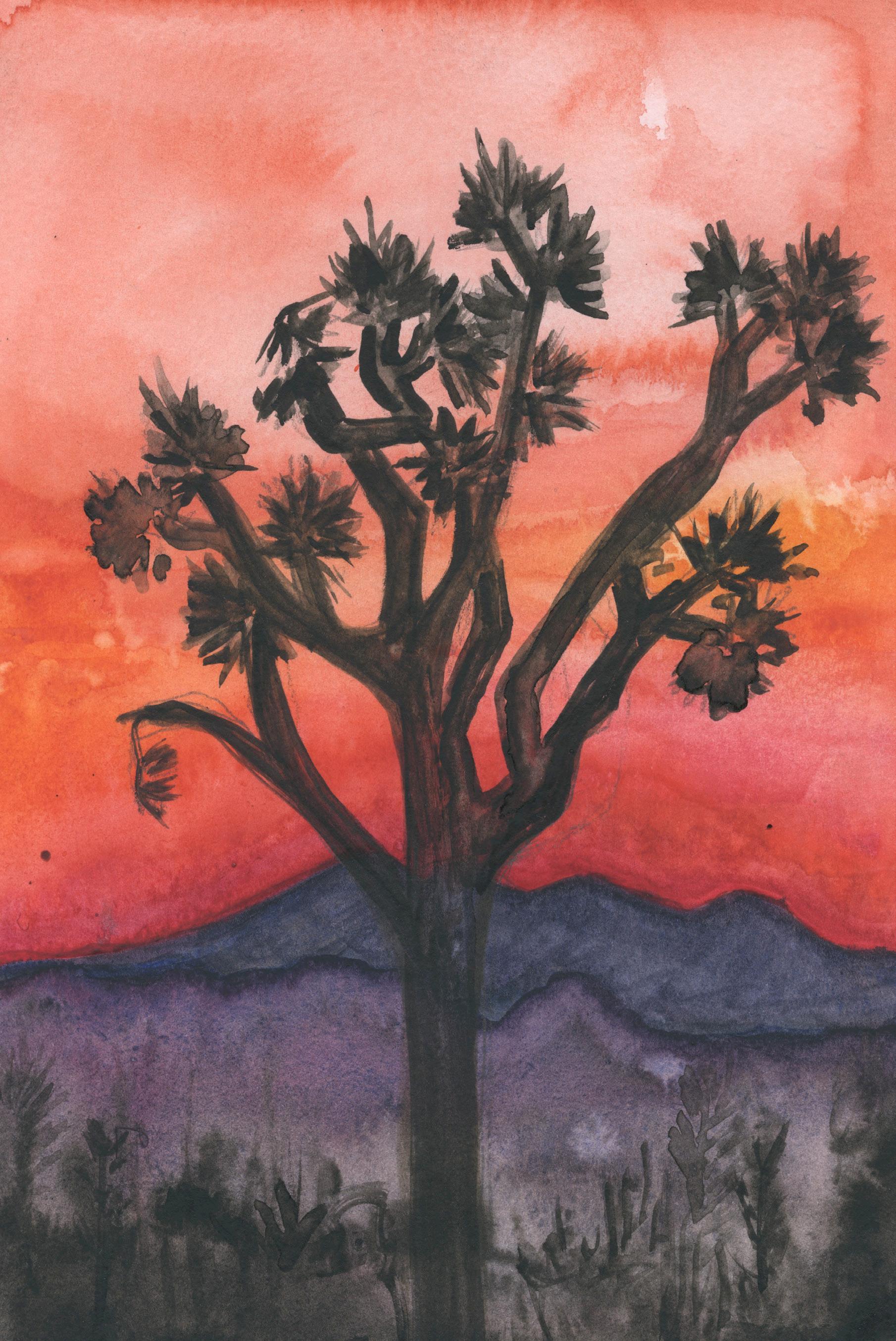
In death, all memories fade as music fades, though, transformed to flame, some memories still pull, each rising cinder lighting the desert as a throb, a glint, and then burning out, like the fireflies I saw the night after my father died, a suicide two days before Christmas when I was twelve. I wandered alone through the orange grove, though I cannot remember if it was then or before, the limbs heavy and hanging as the fireflies gleamed, like my father in the Second World War, a fighter pilot, there at the bombing of Pearl Harbor, the flashes of fire in the sky imprinted on his mind, the back of his eyelids, stars in negative that no drink could quell, my mother, lost too from this earth,
13
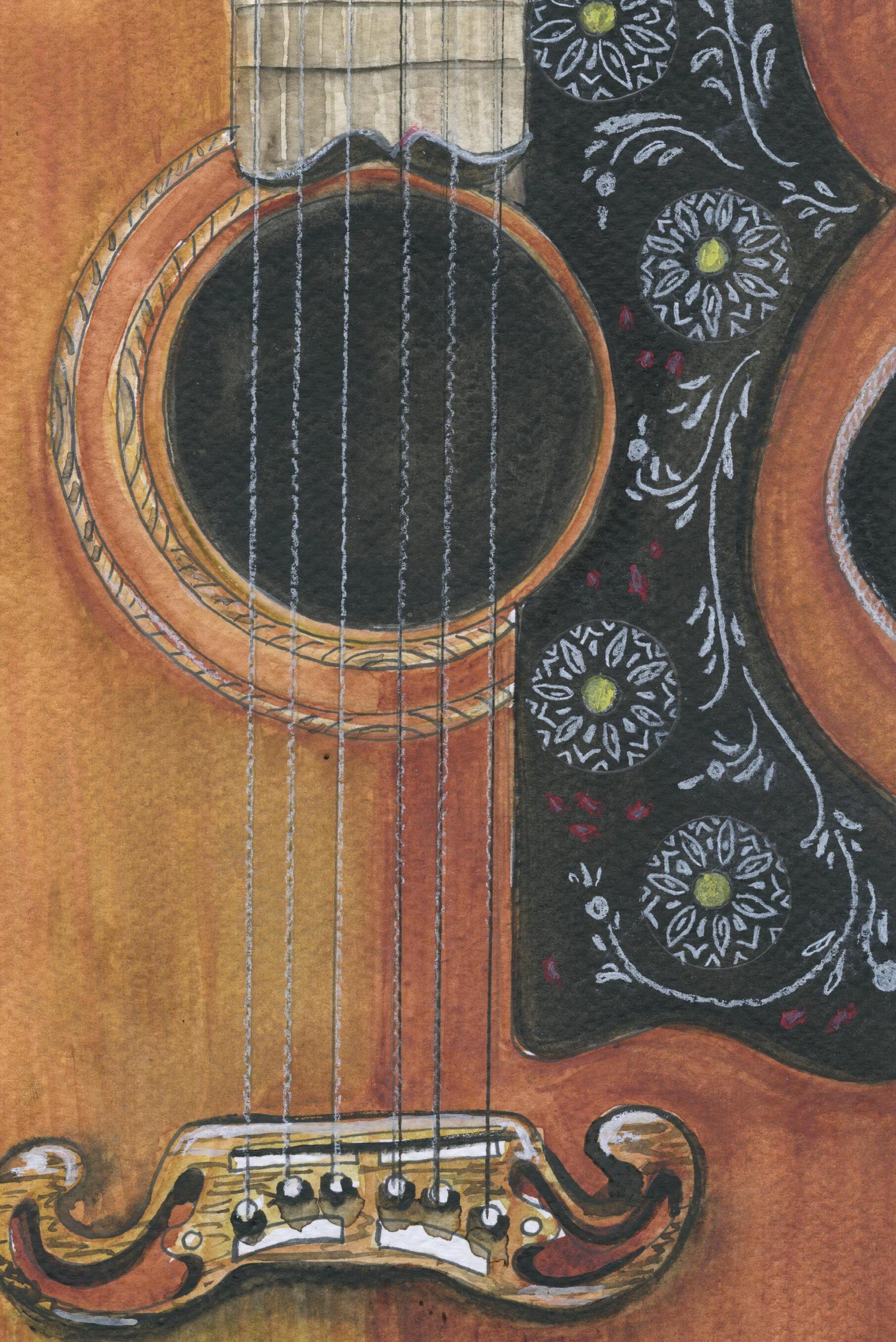
from cirrhosis, the day I graduated high school. I remember both so little and so much—the Cambridge sidewalk bricks jutting up beneath my sock feat as I walked home still drunk one morning after playing a show late into the night, my new boots dangling from one hand, having rubbed blisters into my heels, my guitar in the other, and before me the Charles and the first glint of the sun on the water, a rower in a single scull, the oars dipping and feathering like the divide between the living and the dead, the future and the past, and the boat’s thin wake trailing and dissipating. How easy it is to pull with the current,
15
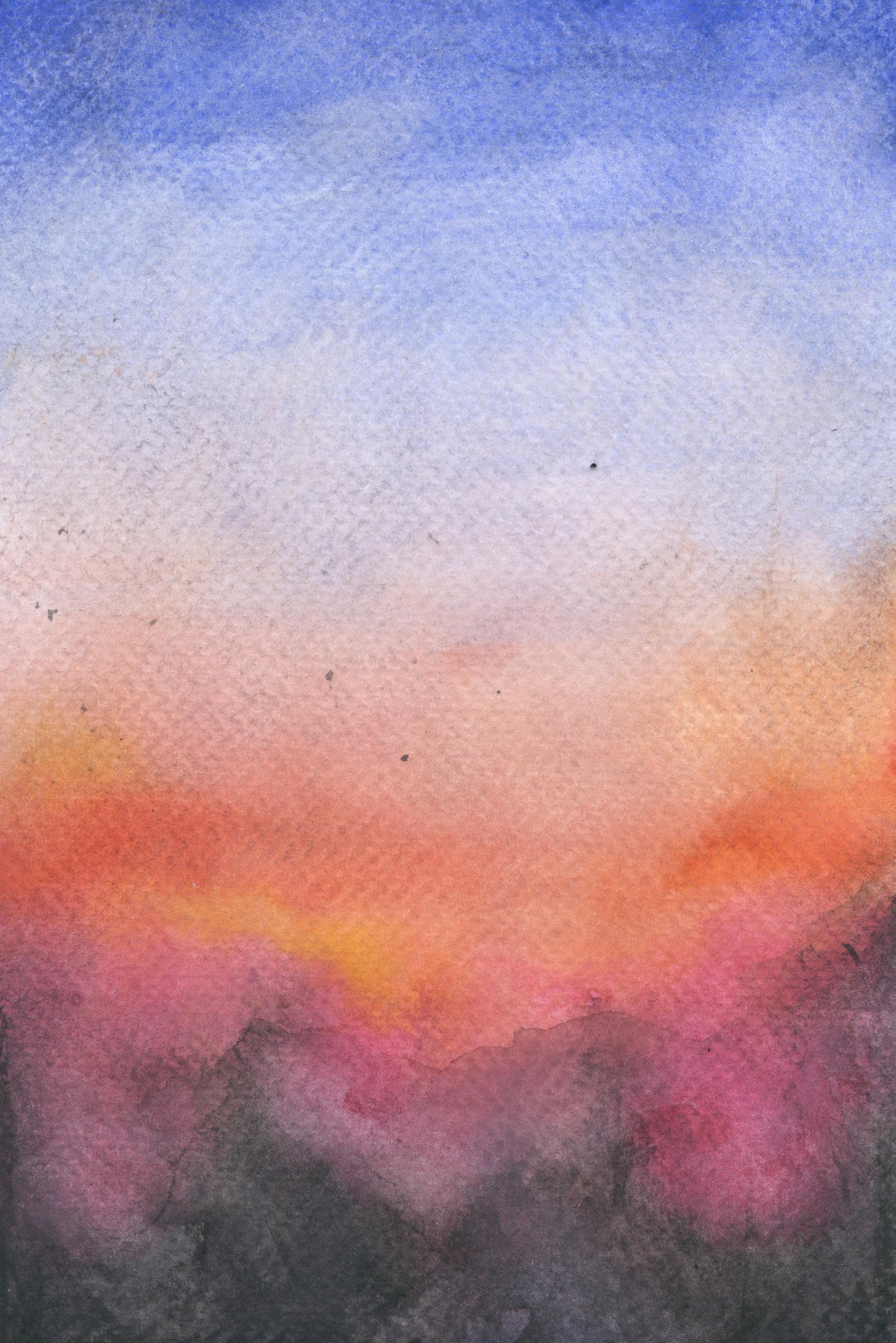
to move in one direction while facing the other, the near silence except for the creak of the oars, their slight dips through the surface, and then their rise. All of this returns to me, though at the time I only thought of home, one thousand miles away. There is so much still I want say. To Nancy, Polly, and Gretchen, all distant and estranged, you must search your thoughts of me alone, as you have already, and must further learn to do. I cannot tell you what to think of me, and even if I could, your thoughts are yours alone. Mine rise to me in this smoke and flame, and I try to shape you in my mind. Polly slips between my fingers as if into a well.
17
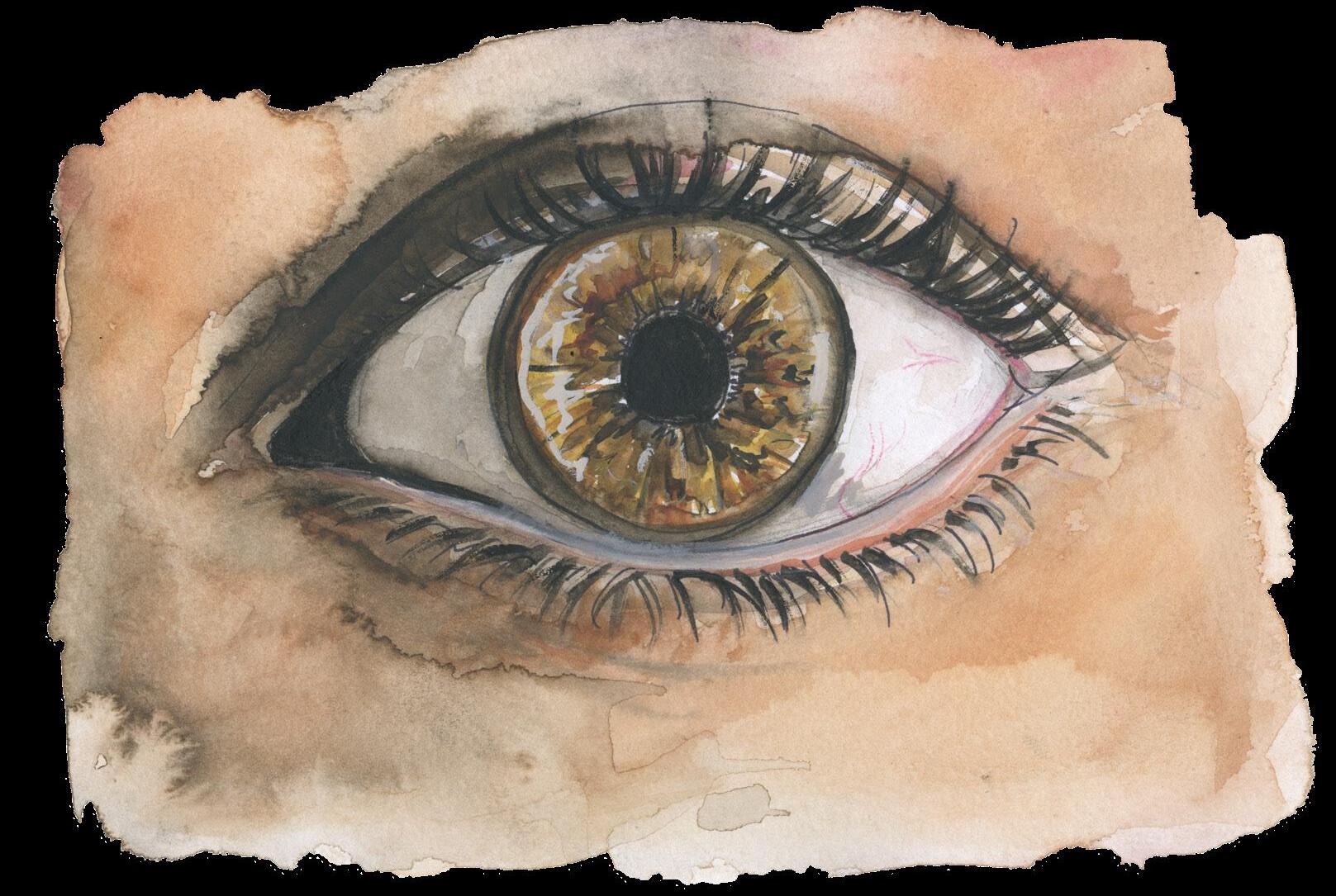
Her hand reaches for me, and I don’t or can’t reach back, the well a throat, the water there dark and swirling like her mother Nancy’s hair, dark as the pupils of Nancy’s eyes, her lowered gaze, turning from me in tears, in anger, telling me it was all my fault as I left again, the final time, yet it was I, I think, beneath the waves, and they above, peering down from the edge of a boat, their forms rippling, and I could not hear their words. I see now that it was my throat the water filled, vines from the ocean floor pulling me, thorns into my skin, their dark poison restraining and suspending me, wrapping my throat, numbing me, never fully asleep
19
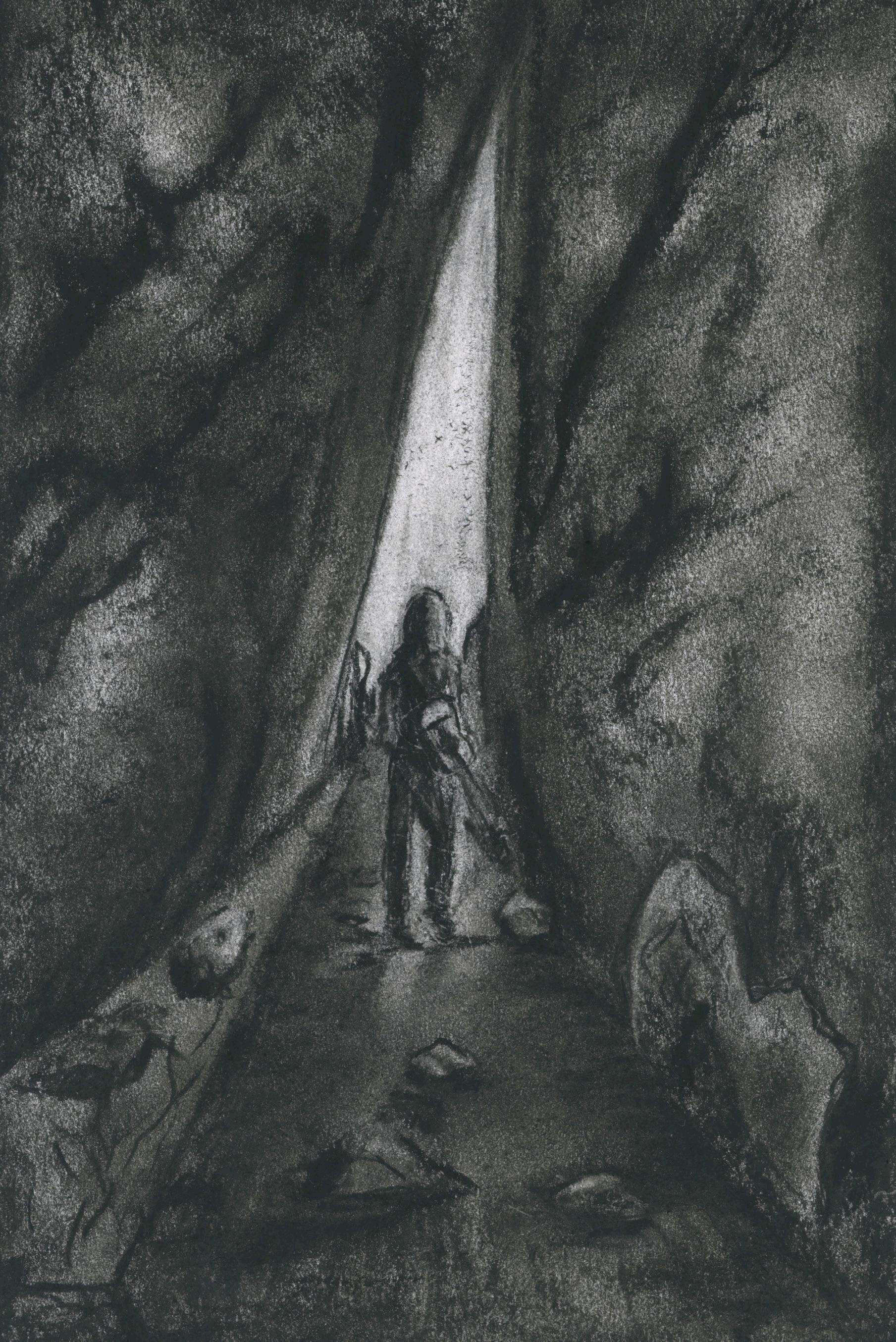
or awake. Polly, I have no claim on you beyond my remorse. I will be forever the father you did not know, the reed of my voice all that remains, causing you to search for me in the arms of others, to stare into the faces on a subway train, the bodies jolting at each turn and the light pulsing like a movie reel at each squealing stop, your reflection held in the tinted window within the subway car, spectral and ephemeral,
as you think you see me reflected, standing at your side, my back to you, so much so you try to stand as the subway turns, and stumble, reach for the pole, a stranger catching your arm, but when you lift your gaze the stranger is not me, and you are alone again.
21

Your future without me will become your present and your past, and I see you returning again and again to the hotel room that held my last slowing breaths, you on the bed there in the dark beneath the soundless fan blade, lying where I had lain, your form giving shape to mine as a lone record turns in the room
like the questions you will have of me forever. Gretchen, my hope is you will remember me as on our wedding day and not as I am now in the end, already separated from you, your long-sleeve wedding dress abandoned, its form a resignation, hanging like Spanish moss in a closet at your father’s New Orleans estate. I would say one thousand times I am sorry
23
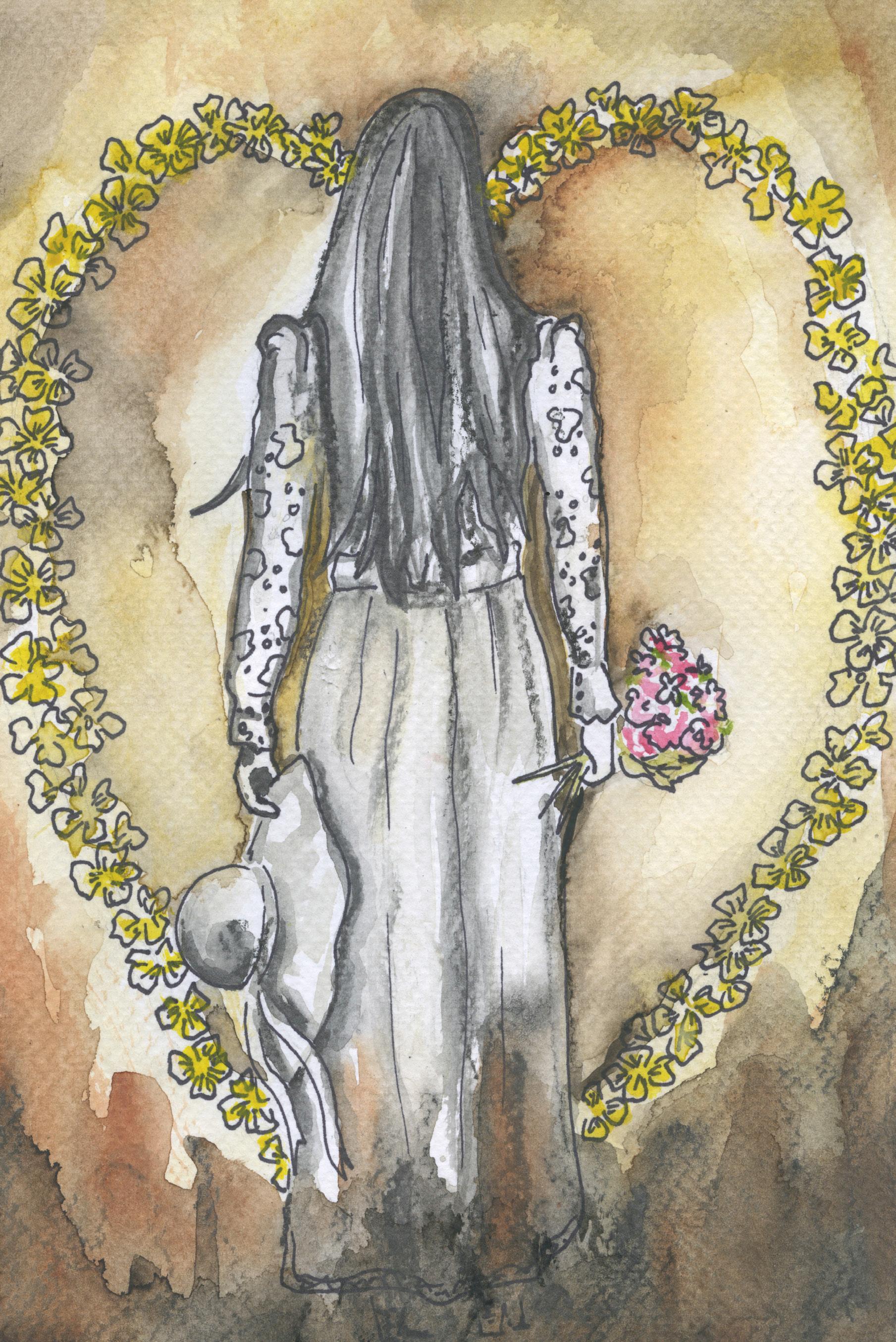
though I do not know what good it would do.
All I ever wanted was to sing. When asking how hard it was for me and Emmylou to harmonize, an interviewer, assuming the intricacies made the process hard, leaned forward in his chair, two fingers at his dimpled chin, then smirked when Emmylou and I both laughed.
Singing with Emmylou was the easiest thing I had ever done, easy in its very nature. Our voices intertwined like the colors of the desert sky when the sun resigned behind the rock outcroppings and the mountains. I wish that I could say I understand it all, yet all I know and feel is longing for what I leave behind.
25

Already, the authorities are en route.
The coffin burns yet will not be consumed.
There is a limit to how high this smoke will rise. It thins as all things thin and cannot hold these memories long.
My hopes and sorrows merge and dim.
Beloveds, sing for me from where I cannot sing, and speak from where I cannot call.
From smoke, I merge into the air and sky.
Behold my desert stars’ last bloom.
27

About the Author
Jonathan Fink is Professor and Coordinator of Creative Writing at University of West Florida. He has received fellowships from the National Endowment for the Arts and the Florida Division of Cultural Affairs, among other institutions. His poems and essays have appeared in The New York Times Magazine, Poetry, Narrative, Slate, and other publications. His most recent book, Don’t Do It— We Love You, My Heart, is forthcoming from Dzanc Books.
About the Artist
Julie Fink is an artist and educator living in Pensacola, FL. She received her BA in Art from Saint Mary’s College in South Bend, Indiana. Following graduation, she served as a volunteer in the Peace Corp in Romania. Julie’s artwork ranges from traditional fine arts such as painting and drawing to painted ceramics and larger projects such as murals and installation projects.

29
